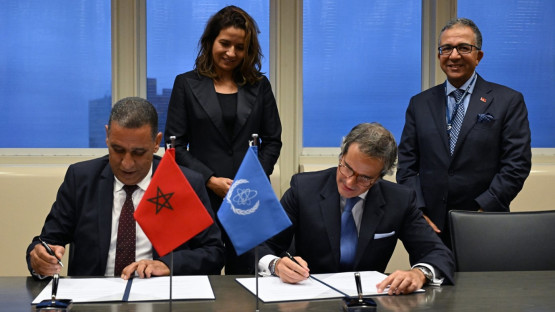The Qatar General Electricity and Water Corporation (Kahramaa), in partnership with the International Atomic Energy Agency (IAEA), recently convened a comprehensive training workshop focused on the principles and applications of radioactive and stable isotope techniques in water studies.
Held under the auspices of the IAEA’s isotope hydrology training programme, the session covered both radioactive tracers—such as tritium—and stable isotope analysis including oxygen‑18, deuterium, and noble gases. Participants received instruction on laboratory methodologies like laser spectroscopy and liquid scintillation counting, as well as guidance in data processing, quality control, and interpretation of hydrological findings
Designed to bridge theory with hands‑on practice, the course explored how these isotopic tools can identify water sources, track groundwater flow and mixing, estimate water residence times, and improve management of surface and subsurface water resources
Though attendance numbers were not disclosed, the workshop aligns with broader IAEA–Qatar efforts under its Technical Cooperation Programme, which emphasizes peaceful applications of nuclear science in critical sectors such as water resources, environmental protection and agriculture
Experts reiterated that equipping Qatari water specialists with isotope hydrology skills is vital in light of climate stress and rising demand for robust water assessment tools. The event further advances Qatar’s growing role as a regional centre for scientific capacity‑building via IAEA collaboration—following previous trainings accredited to its national laboratories in environmental and food safety domains
By strengthening national expertise in isotope‑based water analysis, the initiative promises more precise tracking of aquifer recharge, management of scarce water reserves, and mitigation of contamination risks—offering valuable insight for sustainable water governance across arid environments.
Kahramaa and the IAEA pledged continued cooperation in technical training and resource stewardship, reinforcing Qatar’s commitment to harnessing nuclear applications for peaceful, long‑term impact in water sustainability and scientific innovation.
